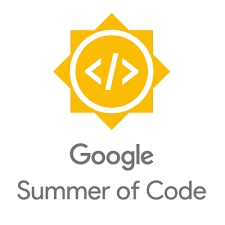Join poliastro thanks to Google Summer of Code!
We are glad to announce that poliastro will accept student applications during Google Summer of Code this year, thanks to the umbrella organization OpenAstronomy! 🚀
For the newcomers, poliastro is a pure Python library that allows you to easily simulate and visualize interplanetary orbits in an interactive way, used by people from all around the world. Sounds interesting? Read on!
What is Google Summer of Code?
Google Summer of Code (from now on, GSOC) is, according to its own website:
a global program focused on bringing more student developers into open source software development. Students work with an open source organization on a 3 month programming project during their break from school.

GSOC is the inspiration for the Summer of Code in Space (SOCIS), a similar program organized by the European Space Agency in which we also participated last year, with great success.
The process of GSOC before the coding starts goes more or less like this:
- Mentoring organizations apply ✔️
- they get accepted (yay!) ✔️
- students start getting familiar with the project of their choice ✔️
- they send a proposal (March 12 - 27, 2018 ⬅), and
- they get accepted (hopefully! on April 23, 2018)
How did we get to this point? Keep on reading!
What is OpenAstronomy?
This year is the first one we are participating, thanks to the umbrella organization OpenAstronomy, which is, again according to our own website:
a collaboration between open source astronomy and astrophysics projects to share resources, ideas, and to improve code.
poliastro is a project member of OpenAstronomy, but there are many more: AstroPy, SunPy, JuliaAstro... Many of them are participating in GSOC!
Sounds interesting, how much do I get paid?
On the GSOC website you can find the stipend amount for each country. For the country I come from, Spain, it's $5400 in total, which is roughly 1500 € per month. Of course, you first have to meet the eligibility criteria, send a successful proposal, and get accepted.
Awesome! How can I participate?
Fantastic! The first thing you should do is to select on which project you would like to participate. We would love to have you all in poliastro, but you might be more interested in Solar physics, or the Julia programming language, or Software Defined Radio... There are tons of different projects!
Whichever project you would like to participate in, including poliastro, will have an "ideas list" somewhere. These ideas give you inspiration on what the project administrators expect from students, what is the functionality or new developments that they desire... But you can propose your own ideas as well! Here you can find the ideas list for poliastro and the rest of OpenAstronomy projects.
And finally, once you have decided which project is your favourite, you should run and engage with it in some way. For poliastro we encourage you to join our chat, and other projects will have their own documentation channels.
Fair enough, but how do I get started?
I know, too much information, right? Here is a list of things you can do if you want to work with poliastro this summer:
- Join our chat (you already did that, rigtht?)
- Read the documentation (at least a little bit!)
- Play with the notebooks (don't need to install anything!)
- Watch a talk about poliastro, like this one!
- Clone the git repository, and make sure that the tests pass
- Take a look at the issues list
You already have enough homework to get started, but don't get overwhelmed - just join our chat (did I forget to mention?) and say hello!
And then what?
And then... you decide! I can help you polish your proposal if you need to, find an idea to work on, give a hand with git, suggest a different project or organization based on your skills and interests... If you happen to send a good proposal to work on poliastro, you will have good chances to get selected and maybe we will have the opportunity to work together and learn a lot. Also perhaps give a talk in a conference or two...
I would greatly appreciate if you spread the word about this. I believe GSOC is a great opportunity to get in touch with open source and make a big contribution to science and technology.
Before you leave, let me add a very important impostor syndrome disclaimer (from here):
I want your help. No really, I do.
There might be a little voice inside that tells you you're not ready; that you need to do one more tutorial, or learn another framework, or write a few more blog posts before you can help me with this project.
I assure you, that's not the case.
If you have read this far, I hope to have you on board very soon :)
Per Python ad astra!